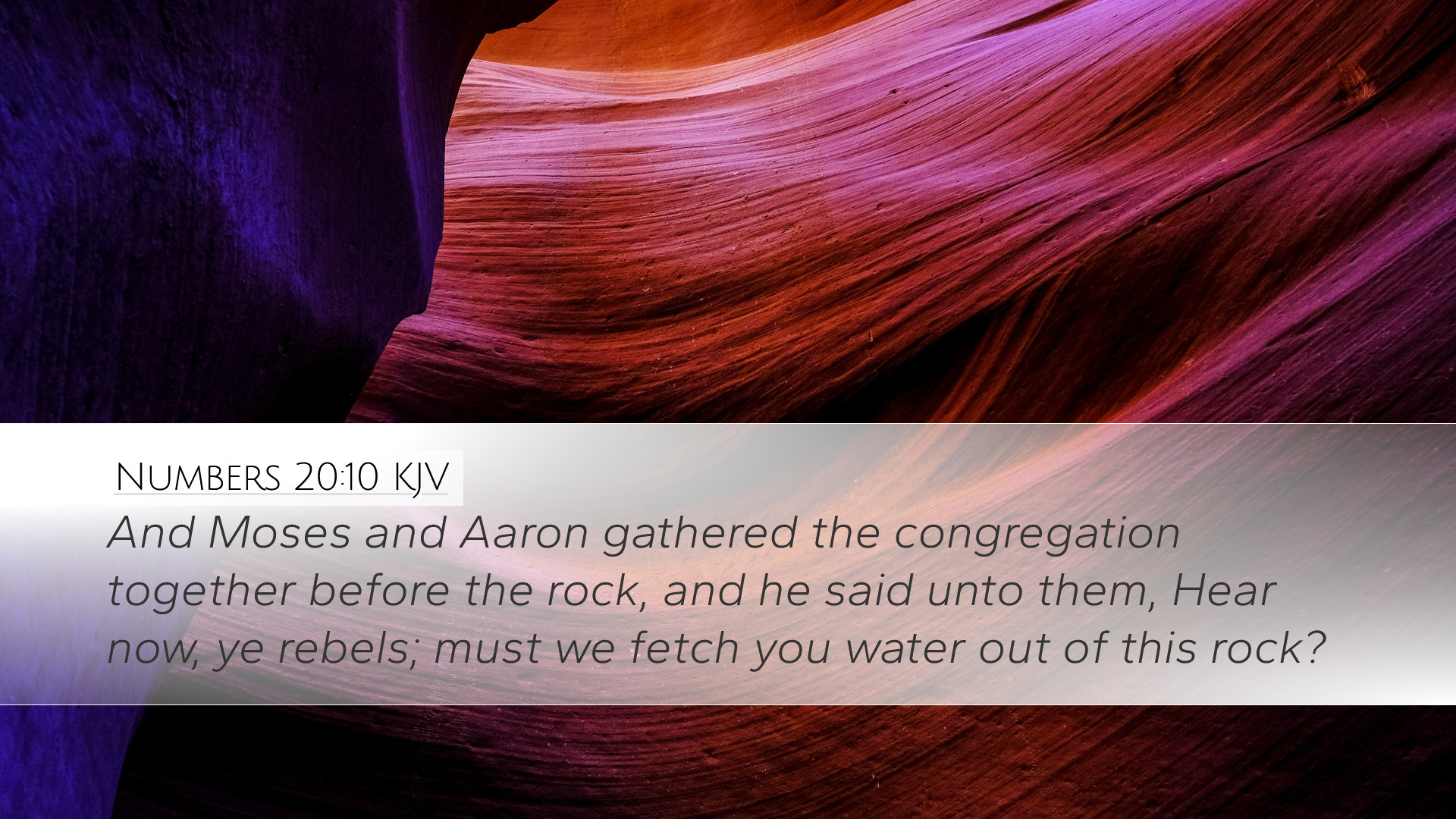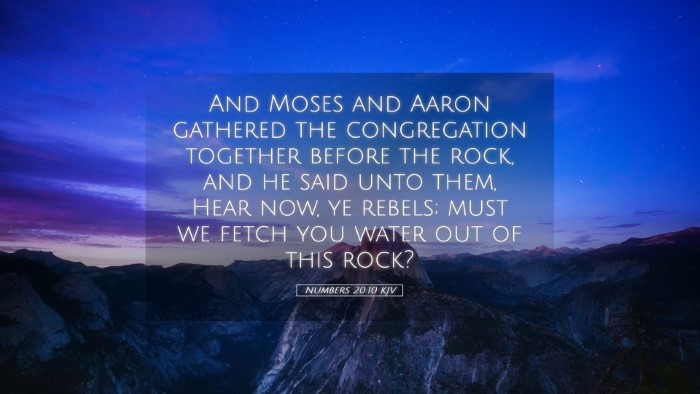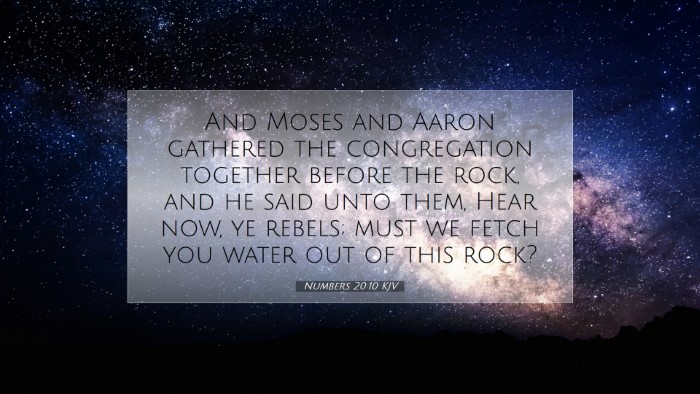Commentary on Numbers 20:10
Text of Numbers 20:10 (ESV): "And Moses and Aaron gathered the assembly together before the rock, and he said to them, 'Hear now, you rebels: shall we bring water for you out of this rock?' "
Contextual Background
The book of Numbers chronicles the Israelite's journey through the wilderness, highlighting their trials, rebellions, and God's faithfulness. In this chapter, we encounter a crucial moment marked by frustration and failure on the part of Moses and Aaron. The events leading to this verse are significant as they illustrate the broader themes of disobedience, leadership, and divine authority.
Moses’ Leadership and the Assembly’s Rebellion
In Numbers 20, we witness the culmination of the people’s recurrent doubts and grievances against God’s provision and Moses’s leadership. By this point, the Israelites had experienced multiple instances of God's miraculous provision yet continued to respond with rebellion, revealing the heart’s propensity towards discontentment when faced with adversity.
Matthew Henry asserts that Moses directly addresses the assembly with the term "rebels," highlighting not only their disobedience but the spiritual condition that leads to their grievances. This implies a failure to recognize the authority of God’s chosen leader and, ultimately, of God Himself.
The Significance of the Rock
The rock from which Moses is to bring water carries profound theological significance. Albert Barnes elaborates on the typological representation of the rock as a symbol of Christ. Just as the rock provided sustenance for the Israelites, Christ is the spiritual rock from which believers draw eternal life and sustenance.
The reference to striking the rock echoes earlier events (Exodus 17:6), where water flowed from the rock at God’s command. However, this situation starkly contrasts the previous event, as Moses will demonstrate a lack of faith by striking the rock instead of speaking to it as commanded (Numbers 20:8).
Theological Implications of Authority
This incident brings to light the serious nature of spiritual leadership. Adam Clarke comments on the gravity of Moses’s lapse in judgment. A leader's actions and attitudes significantly impact the community's faith and obedience. Moses's frustration leads to a deviation from God's instruction, showcasing the peril of allowing personal emotions to dictate actions that have spiritual ramifications.
The phrase "shall we bring water for you" suggests a shift in Moses's role from God’s messenger to a performer of miracles. Here, we see the dangers of pride and self-reliance creeping into Moses’s speech, compromising his leadership and undermining God's glory.
God’s Response to Disobedience
The consequences of Moses and Aaron’s actions will later be revealed in the narrative as they are barred from entering the Promised Land (Numbers 20:12). Matthew Henry underscores that this serves as a warning to all leaders about the sober responsibilities that come with their calling.
Furthermore, the assembly’s persistent rebellion despite witnessing God’s provision reflects an underlying issue of faith. Their continuous demands indicate a lack of trust in God’s ability and willingness to provide for their needs. This serves as a vital lesson on faith in the face of trials.
Application for Contemporary Readers
For pastors, students, and scholars today, Numbers 20:10 calls us to examine our responses to the Lord's leading and authority. It emphasizes the necessity of maintaining faith in God's provision during difficult times. It is also a plea for humility in leadership, urging leaders to rely fully on divine guidance rather than personal emotions or strengths.
The complexities of Moses's character—his frustrations, failures, and ultimately his faith—provide a multifaceted model for contemporary leadership. Engaging with this text allows for deeper reflections on how we lead, serve, and trust in the provisions of God amidst adversity.
Conclusion
Numbers 20:10 stands as a poignant reminder of human frailty in spiritual leadership, the importance of adhering strictly to God’s commands, and the profound need for faith in the presence of ongoing challenges. As we reflect on this verse, may we be encouraged to foster a spirit of obedience, humility, and trust in God’s perfect leading.


